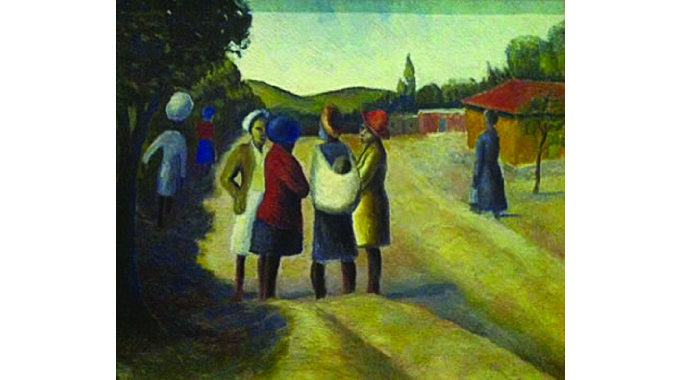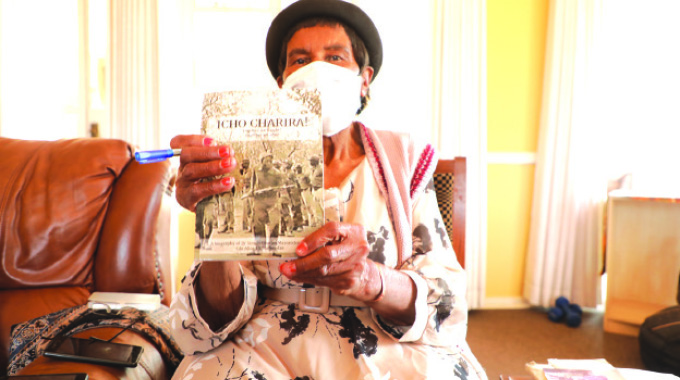Truth has a funny way of coming out

Isdore Guvamombe
Saturday Lounge Reflections
Back in the village, Karitundundu, the ageless autochthon of wisdom and knowledge, says the truth, has a funny way of coming out, like a silent fart, it soon announces itself through smell.
A huge fig tree stood stout and ever green by the verge of the village superimposing over everything and dwarfing all and sundry.
Birds, bees and flies hovered from one branch to another, without much ado.
Goats, cattle, sheep and little everything else gathered on the ground either for shed or for dropping fruits.
Boys at times conquered its lofty heights for the fruits or for trapping birds.
At night, its huge frame was a place of courtship for village boys and girls.
Late night it must have seen worse things as it was believed that witches would gather there for their briefs before and after their errands.
It was believed, the witches shared their loot from the graves and from the living, there, before returning to their homes and morphing into people.
This tree knew many secrets about the village and kept them guarded.
It never spoke. It had seen courtships blossom into marriages. It had seen divorces, too. Mum!
One morning an inexplicably strange piece of meat was found dropped by the foot of the tree and the village went agog, with theories and counter theories.
One of the witches, it was concluded, had thrown away the piece of human biltong in protest after being given what a portion she did not like.
Back in the village, in the land of milk honey and dust or Guruve, it was common practice to impute every old woman with perpetrated wrinkles, a witch.
Those ugly and yet once beautiful faces, seemed to have been cursed by wrinkles. No old woman was clean! That was the fad of the village.
One such old woman was Kamuchacha, whatever that name meant, this villager has never come to understand it.
She was fast and had a sleek tongue for her age, only her skeletal body, perpetrated wrinkles and a network of veins on her scalp and hands sold her age out.
Kamuchacha was mother to Timoti, one of the village’s oldest bachelors, in his early 30s.
At the that age he had not yet married. He was the last born.
Some said he was spoiled as the last born and yet others felt he was being abused by his mother’s goblins.
But as usual it was the rumour mill that had it all.
The rumour was that Timoti would never marry because his mother turned him into a hyena at night and rode roughshod on his back, through storm and through the calm, hence he was too tired to date, marry and raise a family.
No one proved it though, the village needed no proof on such issues.
But one day, rumour started circulating that Timoti had been seen with Muchaneta twice in the stealth of the night at the big tree. Before the whole village knew it, they got married, the traditional way.
They were a great couple and did very well in farming and started living a modest life.
But, once you marry in the village, everyone starts looking for signs of pregnancy. Moon after moon, the village elders, especially the elderly women started looking for signs, that something was growing in Muchaneta’s womb.
There was no signal.
Muchaneta was not spitting. She only had phlegm from clearing her throat. She was not vomiting. She was not changing. The village had eyes on her 24/7.
Timoti on his part, started getting favours at beer drinking binges, where the elders favoured him with drags, to strengthened his fire power. He was also getting a lot of advice on bedroom antics.
When village meetings were called at the borehole early in the morning, Timoti was exempted, for, back in the village elders with cotton tuft hair, say never make an early appointment with a newly-married man, while you wait for him by the roadside for the errand, he will be at it.
Days passed into moons and moons turned into years and nothing happened.
The odds were against Muchaneta.
In the village everyone blames the woman first.
Things got worse on the eighth year of their union when Timoti married a girl from the next village as a second wife.
Soon she showed all signs, a protruding stomach, vomiting, eating clay from mounts a cocktail of funny behaviour.
The village exonerated Timoti and blamed Muchaneta for everything.
Somehow Mucheneta took the coming of the second wife with a pinch of salt. She lost her dignity.
She lost her social standing. She saw no value in herself.
By the 14th year of Muchaneta’s marriage, the second wife had dropped two more children, making them three, children for Timoti and zero for Muchaneta.
The first child was named Tauya loosely translated to “we have arrived on the scene”, the second was Vengai (hate) and the last one a girl, Nyarai (be ashamed). The names told the story and Muchaneta indeed interpreted them correctly, to mean exactly what they were. Disdained! Scoffed.
After a lot of self-introspection, she decided to leave. It was a personal decision. She had taken a lot.
Muchaneta got a job as a clerk at a farm across the Dande River. Suffice to say this was a spitting distance from the village. The owner of the farm, and his family gave Muchaneta a cottage.
Her duties included counting goats, cattle and chicken in the morning and in the afternoon. She also counted everything that came in and out of the storeroom.
Her worst moments were mating pigs. She had to keep records on the pigs too, to determine the gene factor and avoid in-breeding.
Sparky was the name of the boy who looked after the pigs. He was single, young and energetic. Handsome too. He seemed to enjoy mating the pigs, especially in the presence of Muchaneta. What happened one days after mating the pigs, was the turning point of their lives. They then repeated it again and again.
Muchaneta she started growing big. She had peace of mind and she got good food. Sparky was good company too. They became very close.
One wintry night, Muchaneta gave birth to twins and the news spread to the village, like veld fire. Questions about Timoti’s ability to father children, started being thrown around. There was confusion. Quandary.
Timoti on his part was pushed to the edge. He had a lot to prove. He started suspecting foul play on his second wife. But he had no proof.
One night while listening to radio, there was a DNA testing programme and he took the numbers. Soon he sold his cow and took his children for DNA testing. A week later all hell broke lose.
Timoti was “excluded as the biological father of all the three children.’’
Back in the village, Karitundundu, the ageless autochthon of wisdom and knowledge, says the truth, has a funny way of coming out, like a silent fart, it soon announces itself through smell.










Comments